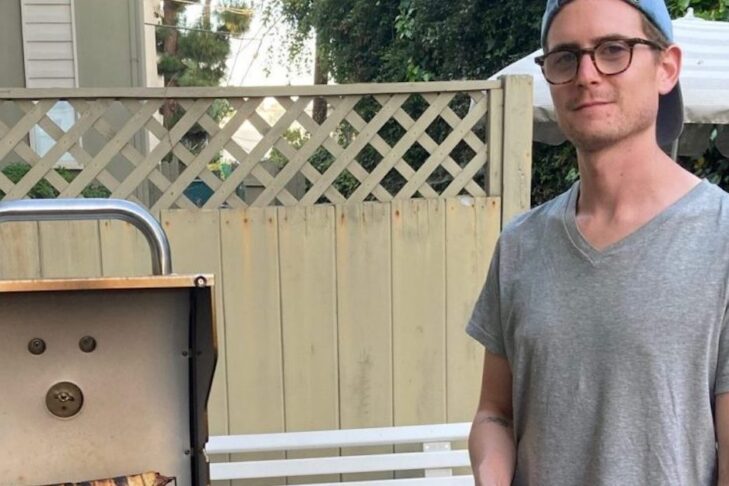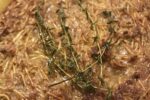On his website, Stovetop Co-Op founder Ben Helfgot proclaims he “is all about food and people who love it.” Helfgot, who has roots in Boston, recalls grilling with his father during a January blizzard, as well as searching for the best takeout or fancy meals in Europe and North Africa.
Helfgot has worked in the restaurant and food industry since he was a teenager. He got his start in Boston and spent a decade in Manhattan managing some of New York’s best-known dining establishments. During his decade in Manhattan, he assumed roles from line cook to sommelier. In 2019, he moved to Palm Springs, California, where he reinvented himself during the pandemic. Through Stovetop Co-Op, Helfgot offers user-friendly cooking sessions over Zoom to create everything from chicken piccata to savory and sweet kugels.
Helfgot believes the cooking process should never be intimidating and that anyone can cook a satisfying meal. As his website promises, Helfgot “distills his professional career in food and restaurants into practical advice for everyday cooks on everyday budgets. No truffles, no veal stock, no blowtorches. Don’t stare into your fridge like a deer in the headlights; let’s make something delicious together.”
Helfgot recently spoke to JewishBoston about his Zoom cooking sessions and shared two recipes with us: potato-leek kugel and Tunisian couscous with seven vegetables.
How did you initially bring your enthusiasm for cooking online?
I found myself unemployed due to COVID-19, and as a way to occupy my time I cooked every day. Friends suggested that I write down my recipes because they were also cooking every single day. I started a Google doc of just recipes, and a friend suggested I start a blog. Then the same friend said, “I’d love to make one of your recipes with my sister. Could you show us how to do it? We’re a little intimidated doing it ourselves.”
We set up a Zoom call to make chicken piccata. I made it on my end, and they made it on their end. They had their laptop in their kitchen, and I had mine in my kitchen. It was just so much fun that I decided to take that as a business idea and run with it. I called the business Stovetop Co-Op. I meant it to be an online resource and community for cooking at home.
I look at Stovetop as solving two problems. The first problem, the most important problem, is bringing people together now, especially when people are social distancing, unable to gather in homes or meet up in restaurants. Bringing people together over whatever platform they use is great. But I found that when you’re doing an activity together, it’s even more fun. What better activity than to learn how to cook and make something delicious? I feel very strongly that cooking is not hard, and everyone can do it. You don’t need any fancy equipment, fancy ingredients, or fancy techniques. It should be easy and fun, and accessible to everybody.
What are some of your favorite High Holiday recipes?
Related
One Sephardic dish for the High Holidays I make is called “Tunisian Couscous with Seven Vegetables.” Seven is a significant number in Jewish culture, and I include seven vegetables in this recipe. I use typical Moroccan-style couscous, which is small, small, couscous. I use chard, chickpeas, carrots, summer squash or zucchini, dates, leeks and tomato.
Every vegetable has its own significance, and I also use turmeric, ground ginger and some cayenne chili. I stew all the vegetables together and use the cooking liquid from the couscous, and you’re left with a lovely, pillow-y pile of couscous. You lay the vegetable stew right on top. Not only is this recipe kosher, it’s also vegan. On the Ashkenazi side, I like to make two kugels for the holidays—a potato-leek kugel and an apple, honey and cinnamon one. One is sweet, and one is savory.
What steps should people be aware of when they follow a recipe?
I call myself the anti-Blue Apron. I know a lot of people who love to cook and follow a recipe, and it comes out great. But when they’re sautéing the onion and the garlic, they’re not thinking about what to do with the leftovers. You buy a bunch of parsley and end up using four leaves of it in a recipe. What are you going to do with the rest of the parsley?
Another example is you may have bought a big bunch of basil to make pasta with, and now you have basil sitting in the back of your fridge that you don’t want to throw away. You can make pesto out of it. It’s all about repurposing things, and I think the most important thing is to start learning some techniques.
What are your favorite things to cook with, and what’s your favorite thing to cook?
I use the same three pots. I have one knife and a couple of gadgets here and there that I love. One of my most popular classes is pasta-making. Fresh pasta is one thing that many people are baffled about how to make in their kitchens. A woman from Italy taught me to make pasta. She’s probably in her 90s now. When she was growing up in the south of Italy during World War II, all her family had were flour and water, so they made pasta with it. It wasn’t a huge gourmet undertaking. Food is really about nourishing yourself and nourishing your loved ones. It’s not about what’s the fanciest, craziest thing I can make, which is fun too. But at its core, fresh pasta was born out of how do we make flour, water and maybe an egg yolk into something delicious?
What do you see Stovetop Co-Op evolving into after this pandemic?
I see Stovetop Co-Op bringing people together. That’s what I always loved about working in restaurants—the togetherness of people, and the togetherness of sharing food, sharing a bottle of wine with your loved ones, and letting the restaurant people spoil you. With Stovetop Co-Op, I’m trying to bring that joy to other people and say, “OK, I know you’ve probably been in front of your computer for 10 hours working all day. Stand up and bring your laptop into the kitchen. This won’t just be another Zoom meeting. Bring your friends, your family and open a bottle of wine while we make some fresh pasta. Hopefully, you’ll learn something and can make this recipe a few times.”
This interview has been edited and condensed.






